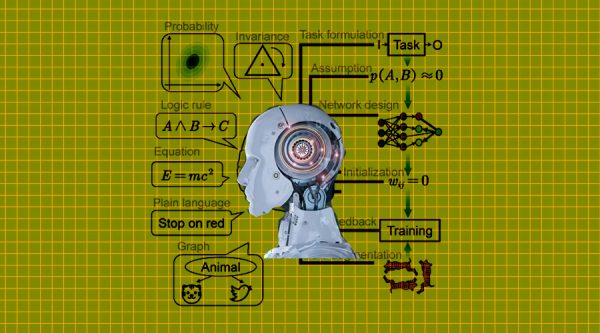Over the years, Java, a popular and flexible programming language, has seen great progress in machine learning (ML). With the increasing need for machine learning applications, developers are looking for libraries that are reliable and effective in order to easily apply ML algorithms. We will examine the top ten Java libraries in this post so that developers can create complex machine-learning models.
1. Apache Mahout: Designed for reliable and distributed machine learning applications, Apache Mahout is an open-source, scalable machine learning library. Mahout provides a range of methods for collaborative filtering, classification, and clustering by utilizing the Apache Hadoop platform. Mahout is suited for managing big datasets and distributed computing settings because of its emphasis on scalability.
2. Deeplearning4j: Also known as DL4J, Deeplearning4j is a potent Java deep-learning library. DL4J is a neural network architectural supporter that can be used for a variety of applications, including image and speech recognition, natural language processing, and anomaly detection. It was developed to run on top of Apache Spark and Hadoop. Deep learning fans will find it to be an excellent option because to its smooth integration with other well-known Java libraries.
3. Weka: An extensive collection of tools for data mining and machine learning activities is offered by the well-known open-source machine learning framework Weka. Weka is a Java-based program that supports multiple techniques for association rule mining, regression, clustering, and classification. Weka’s intuitive graphical user interface makes it suitable for novice and expert data scientists alike.
4. RapidMiner: Including a potent machine learning library, RapidMiner is a complete data science platform. Although the main feature of RapidMiner is its visual workflow architecture, it also provides robust support for Java-based customization and scripting. The platform is a favorite among data scientists and analysts because of its user-friendly interface, which makes it simple to construct, analyze, and deploy machine learning models.
5. Mallet: Specifically designed for natural language processing (NLP) and text mining applications, the Machine Learning for Language Toolkit (MALLET) is a Java-based toolkit. Mallet offers information extraction, topic modeling, clustering, and document classification capabilities. Developers working on language-related machine learning projects choose it because of its comprehensive documentation and user-friendly API.
6. ELKI: An environment for developing knowledge discovery in databases (KDD) using index structures, or ELKI for short, is a Java-based data mining platform. ELKI provides a large selection of clustering and outlier detection algorithms with an emphasis on efficiency and scalability. Its adaptable architecture makes it a flexible tool for machine learning applications by letting users select and mix different algorithms to meet their unique requirements.
7. JSAT: The Java Statistical Analysis Tool, or JSAT, is an easy-to-use machine learning toolkit for Java that places an emphasis on effectiveness and simplicity. It offers a simple API for seamless integration into Java applications and covers a wide range of tasks, including clustering, regression, and classification. JSAT is a useful tool for dependable and easily accessible machine learning in Java, with a focus on efficiency and a wealth of documentation.
8. Spark MLib: Apache Spark with Spark MLlib Java APIs are available for MLlib, a machine learning library for big data processing inside the Apache Spark framework. Thanks to MLlib’s extensive support for distributed computing and a wide range of methods, developers can create and implement scalable machine learning systems in Java that can handle massive datasets with ease.
9. Neuroph: Designed especially for machine learning and neural network construction, Neuroph is an open-source Java framework. Java developers can use it for tasks like pattern recognition, picture and speech processing, and other artificial intelligence applications because it offers an intuitive environment for creating, training, and implementing neural networks.
10. Encog: The Enhanced Cognition Framework, also known as Encog, is a feature-rich Java machine learning package that is available as free software. It is compatible with different genetic algorithms, neural network topologies, and other machine learning methods. Encog enables Java developers to construct and experiment with a variety of machine learning models, emphasizing simplicity and flexibility.
In conclusion, Java has developed into a strong machine learning ecosystem with a wide range of libraries to suit different requirements. These top 10 Java libraries provide a wide range of tools to address machine learning problems, regardless of your role as a data scientist, researcher, or developer. These libraries will be essential in determining how Java-based machine learning applications develop going forward.









